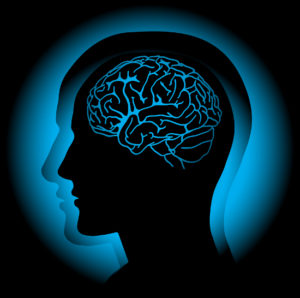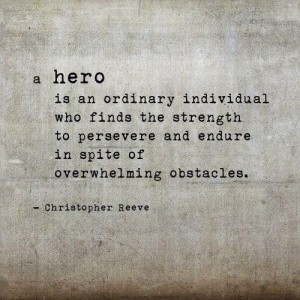
August.
It seems like the sweet sun’s been high in a blue sky for months.
It’s steamy outside. But that’s just fine with me. My feet aren’t cold, dark clouds don’t threaten snow, and everyone’s outside watering yards and going for walks at night.
Author Natalie Babbitt captures some of summer’s magic when she writes:
“The first week of August hangs at the very top of summer, the top of the live-long year, like the highest seat of a Ferris wheel when it pauses in its turning. The weeks that come before are only a climb from balmy spring, and those that follow a drop to the chill of autumn, but the first week of August is motionless, and hot. It is curiously silent, too, with blank white dawns and glaring noon’s, and sunsets smeared with too much color.”
I’ve been upbeat and productive these past few months. I wake with the light thrown through cracks in my bedroom curtains. I charge up on coffee, create a killer to-do-list, and fly out the door with a sort of crazy, off-kilter optimism. Looking out at the sun-baked, south of France Monet-like landscape, all is good.
I am out of the blue of depression. And haven’t been in that god forsaken place since a murky week-long stretch last spring. I am sure the stinky weather had something to do with it. Months of accumulated winter darkness had tipped me into a dark well. Happily, it didn’t last too long.
And for this, I am grateful.
One of the things I do to stay healthy is to take time to reaffirm the goodness in my life when things are on-kilter and going well. It’s like building up a reservoir of fresh water that I can tap into when my streams run dry. I do this by taking the time to be grateful for the good people and things in my life. It warms my soul. And may even put a smile on my face.
Yes, it can be very hard to feel grateful when depressed. When in a bog of waist deep misery, it’s not only unlikely that we’ll give thanks, it might be impossible. We just can’t conjure up the goodness at such times. Everything feels like a mess. We’re fragmented, lonely, and depressed. There isn’t much to hope for. We sort of trudge through our days existing, but not really living.
The devil of depression seems to squeeze out all the goodness out of life. We’re left high and dry. When this happens, we need loved ones and a therapist to help us reap the goodness both past and present. We can’t do it alone. But when we’re feeling well, man is it a great practice.

Here’s a neat and timely tome on this theme from humorist and NPR’s Prairie Home Companion creator Garrison Keillor:
“To know and to serve God, of course, is why we’re here, a clear truth, that, like the nose on your face, is near at hand and easily discernible but can make you dizzy if you try to focus on it hard. But a little faith will see you through. What else will do except faith in such a cynical, corrupt time? When the country goes temporarily to the dogs, cats must learn to be circumspect, walk on fences, sleep in trees, and have faith that all this woofing is not the last word. What is the last word, then? Gentleness is everywhere in daily life, a sign that faith rules through ordinary things: through cooking and small talk, through storytelling, making love, fishing, tending animals and sweet corn and flowers, through sports, music and books, raising kids — all the places where the gravy soaks in and grace shines through. Even in a time of elephantine vanity and greed, one never has to look far to see the campfires of gentle people.”
The goodness of others is grace. It’s the universe’s way of reminding us not to fret too much, that things will work out, that our important jobs are, well, just a part of life, and that uplifting fortune cookie messages sometimes do come true. If I could, I would stick this quote by author Anne Lamott on one of those skinny wrappers:
“I do not at all understand the mystery of grace – only that it greets us where we are but does not leave us where it found us.”
Think of the kind people you’ve had in your life from your past and today; the everyday saints who were dropped into your life for no other reason than to remind you that life can be good, that you are special and that life is worth living.
These people always leave us feeling better than when they found us.
Take the time today to reflect and take in the goodness in your life. Depression may be part of your life. But it isn’t the whole enchilada.
There is always the other side of the coin.
And it’s sweet when we think about it.
By Daniel T. Lukasik
Further Reading:
The Neuroscience of Why Gratitude Make us Healthier by Ocean Robbins in the Huffington Post.
How Gratitude Combats Depression by Dr. Deb Serani in Psychology Today.
9 Ways to Promote Gratitude in Your Life by Therese Borchard at Everyday Health.


 Time is the enemy of our synapse-challenged world. This beast is always just a step behind us. And we keep losing ground as it nips at our heels and bears its sharp fangs. Time, indeed, becomes an enemy.
Time is the enemy of our synapse-challenged world. This beast is always just a step behind us. And we keep losing ground as it nips at our heels and bears its sharp fangs. Time, indeed, becomes an enemy.




 When first diagnosed with depression fifteen years ago at the age of 40, I thought I would recuperate and, more or less, go back to my busy life as a lawyer and husband with a young family. It didn’t work out that way. I soon found out it was going to be a long haul. And I’m still truckin’.
When first diagnosed with depression fifteen years ago at the age of 40, I thought I would recuperate and, more or less, go back to my busy life as a lawyer and husband with a young family. It didn’t work out that way. I soon found out it was going to be a long haul. And I’m still truckin’.











